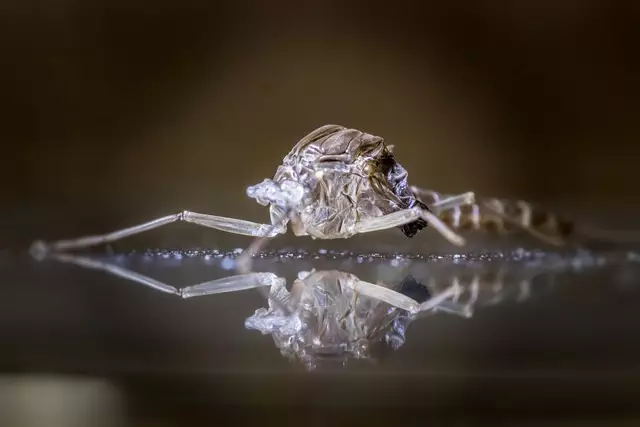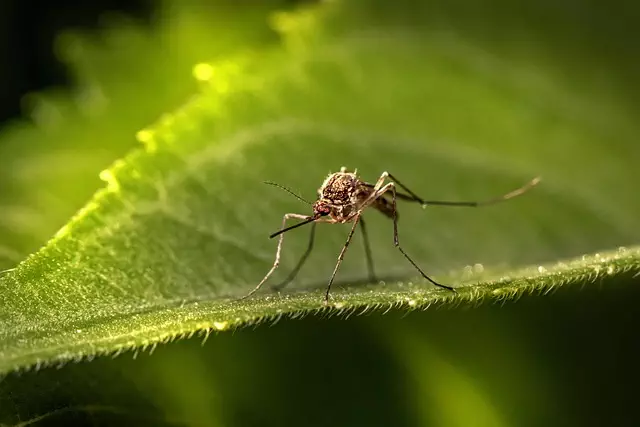Mosquitoes, beyond being a nuisance, significantly impact residential areas through breeding in stagnant water and transmitting diseases. Effective mosquito control involves understanding their behavior, targeting active periods, and eliminating breeding grounds. Traditional chemical methods pose risks while natural strategies like removing standing water, using predators, and essential oils offer safer alternatives. Modern techniques include smart technology-driven traps and innovative biological controls. DIY methods with essential oils provide a cost-effective eco-friendly option, while professional mosquito control services offer tailored treatments and ongoing monitoring. Creating a mosquito-free environment through proper maintenance and repelling plants further enhances protection.
Mosquitoes are more than just a nuisance; they can significantly impact residential areas, spreading diseases and disrupting outdoor activities. Understanding their behavior and breeding patterns is key to effective mosquito control. This article explores various strategies for managing these pests, from traditional methods to modern techniques and natural solutions. We’ll guide you through chemical vs. natural approaches, DIY repellents, professional services, and preventive measures, empowering you to create a mosquito-free environment.
Understanding Mosquitoes: Behavior and Breeding Patterns

Mosquitoes are more than just a nuisance; they’re tiny pests with complex behaviors that impact our daily lives. Understanding their habits is crucial for effective mosquito control. These insects breed in stagnant water, which makes eliminating breeding grounds essential. Female mosquitoes require blood meals to produce eggs, often targeting humans and animals during their feeding cycles. Knowing this behavior allows us to implement targeted strategies.
Their active periods vary by species, but many are most active at dawn and dusk. This knowledge helps in scheduling mosquito control treatments for maximum impact. Additionally, mosquitoes are attracted to carbon dioxide, heat, and certain chemicals present in human sweat, making outdoor activities during peak times less inviting. By combining these insights with modern control methods, we can significantly reduce mosquito populations and create more comfortable living spaces.
The Impact of Mosquitoes on Residential Areas

Mosquitoes are more than just a nuisance; they can significantly impact residential areas, leading to discomfort and potential health risks for residents. In densely populated neighborhoods, mosquito presence can quickly escalate, as these insects breed in stagnant water sources, such as birdbaths, buckets, or clogged gutters, which are often prevalent in urban settings. The buzzing creatures not only disrupt outdoor activities but also pose a serious risk of transmitting diseases like Zika, West Nile, and dengue fever, particularly when they become carriers for these pathogens.
The impact extends beyond health concerns; mosquitoes can negatively affect property values and the overall quality of life. Homeowners may experience reduced outdoor enjoyment, leading to decreased utilization of patios, gardens, or swimming pools, which are common amenities in residential areas. Moreover, visible mosquito problems can create an unsightly environment, prompting residents to seek professional mosquito control services to regain a sense of comfort and security within their own homes.
Traditional Mosquito Control Methods

Traditional mosquito control methods often involve chemical sprays and pesticides, which can be effective in reducing mosquito populations but come with potential health risks and environmental concerns. These chemicals may also kill beneficial insects and can leave residues on plants and surfaces, posing hazards to pets and humans alike. Additionally, these methods typically offer only temporary relief and do not address the root causes of mosquito breeding.
An alternative approach is needed for sustainable and long-term mosquito control. This involves understanding and targeting specific habitats where mosquitoes breed, such as standing water in buckets, flower pots, or clogged gutters. Implementing physical barriers like screens and nets, along with biological controls like natural predators and parasites, can also significantly reduce mosquito numbers. These eco-friendly strategies not only minimize health risks but also contribute to a healthier environment and ecosystem.
Modern Mosquito Management Techniques

Modern Mosquito Management techniques have evolved significantly, offering effective and environmentally friendly solutions for mosquito control. Traditional methods like spraying chemical insecticides are being supplemented with innovative strategies that target specific life stages of mosquitoes. For instance, biological controls such as introducing natural predators like fish or bacteria specifically targeting mosquito larvae can reduce their population naturally.
Additionally, the use of smart technology is playing a pivotal role in Mosquito Control. Traps equipped with sensors and AI can monitor mosquito activity, helping communities implement targeted interventions based on real-time data. These modern approaches not only minimize environmental impact but also promote public health by reducing the risk of mosquito-borne diseases effectively.
Chemical vs Natural Solutions: A Comparison

When it comes to mosquito control, there are primarily two camps: chemical and natural solutions. Chemical methods involve the use of pesticides and insecticides that can be effective in reducing mosquito populations but also raise concerns about potential environmental and health impacts. These products often target adult mosquitoes, using substances that disrupt their nervous systems or interfere with their ability to reproduce.
Natural solutions, on the other hand, focus on environmentally friendly and organic methods. This includes strategies like eliminating standing water (a crucial breeding ground for mosquitoes), using mosquito traps, introducing natural predators like bats or fish, and employing essential oils or plants known for their insect-repelling properties. While these natural approaches may not be as rapid in reducing mosquito numbers, they offer a safer and more sustainable option for mosquito control, aligning with the growing demand for eco-friendly solutions.
DIY Mosquito Repellents for Homes

Many homeowners opt for DIY mosquito repellents as a cost-effective and eco-friendly approach to mosquito control. One popular method involves using essential oils known for their natural ability to ward off mosquitoes. Lemongrass, citronella, lavender, and peppermint oils can be mixed with water and sprayed around windows, doors, and other entry points. This simple solution creates a scent that mosquitoes find unpleasant, helping to keep them at bay.
Creating your own mosquito repellent is easy and customizable. You can experiment with different essential oil combinations or even add plant-based ingredients like garlic or catnip known for their mosquito-repelling properties. DIY methods offer a sense of control over the products used in your home, ensuring a safer alternative to commercial sprays. Additionally, these natural repellents are sustainable and often more affordable, making them an attractive option for those conscious about both health and the environment.
Professional Mosquito Control Services

Many homeowners turn to professional mosquito control services to tackle persistent mosquito problems effectively. These experts offer a range of solutions, from targeted treatments to seasonal packages, designed to reduce mosquito populations and create an enjoyable outdoor living space. Using advanced equipment and industry-leading products, professionals can safely eliminate mosquitoes in hard-to-reach areas and around structures.
Professional services also provide ongoing monitoring and maintenance, ensuring that mosquito populations remain under control. Regular inspections help identify potential breeding grounds and allow for prompt treatment, preventing future infestations. With their expertise and specialized tools, these mosquito control specialists offer a comprehensive solution, giving homeowners the peace of mind to enjoy their outdoor spaces without the hassle of pesky mosquitoes.
Preventive Measures: Creating a Mosquito-Free Environment

Creating a mosquito-free environment is an essential aspect of effective mosquito control. Start by eliminating standing water around your home, as this is where mosquitoes breed. Regularly empty flowerpots, bird baths, and other containers that can collect water. Keep gutters clean and ensure proper drainage to prevent water from pooling. Additionally, trim vegetation and mow lawns regularly to reduce areas where mosquitoes can rest and breed.
Consider using mosquito-repelling plants like citronella, lavender, or marigolds in your garden. These natural alternatives can help keep mosquitoes at bay. Installing screens on windows and doors is another effective measure. Regularly inspect and maintain these screens to ensure they are secure and free from tears or holes. During peak mosquito activity times, consider using indoor mosquito traps or outdoor zappers to reduce their population around your living spaces.
